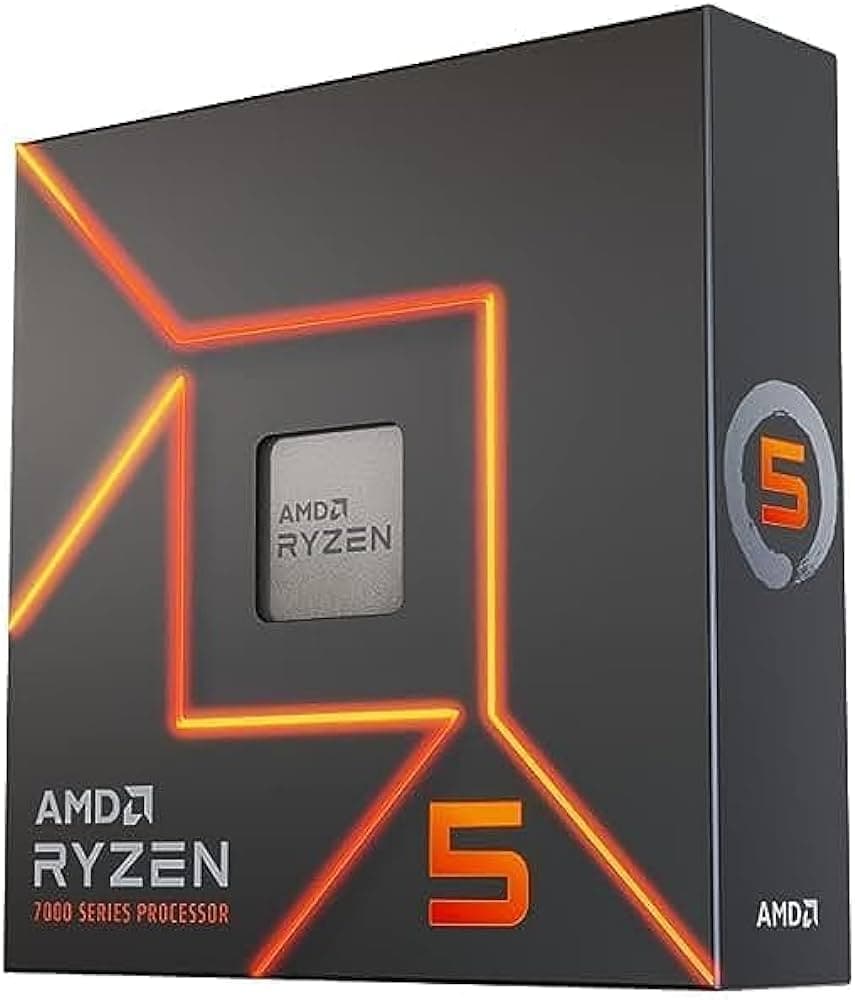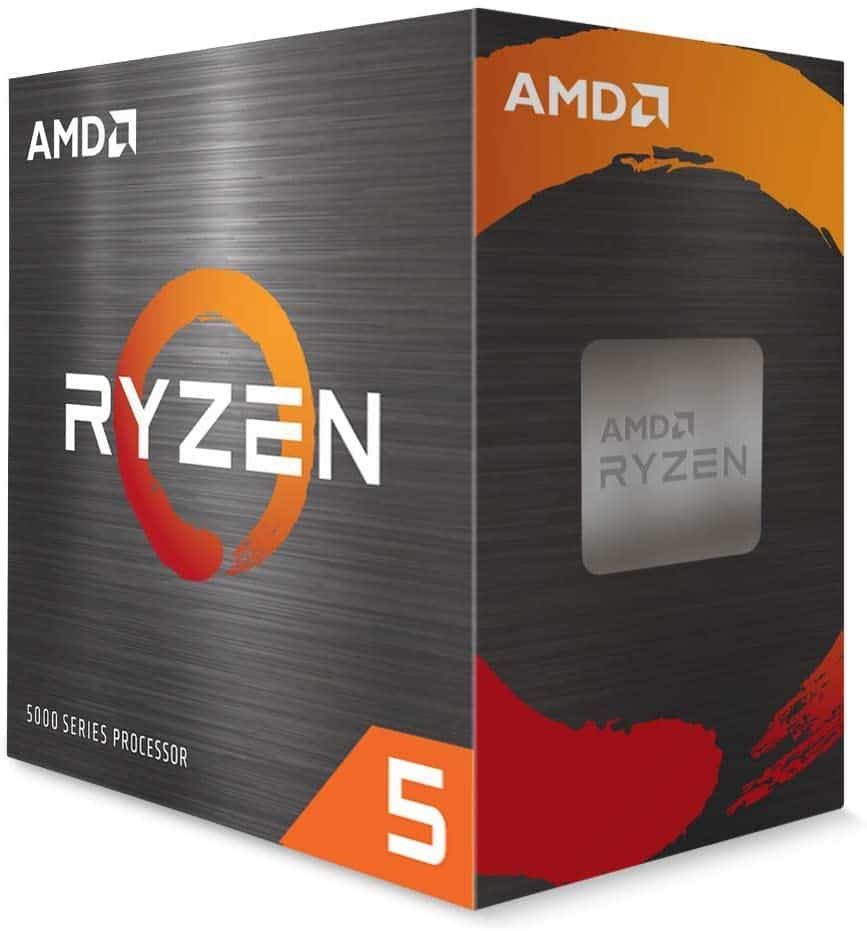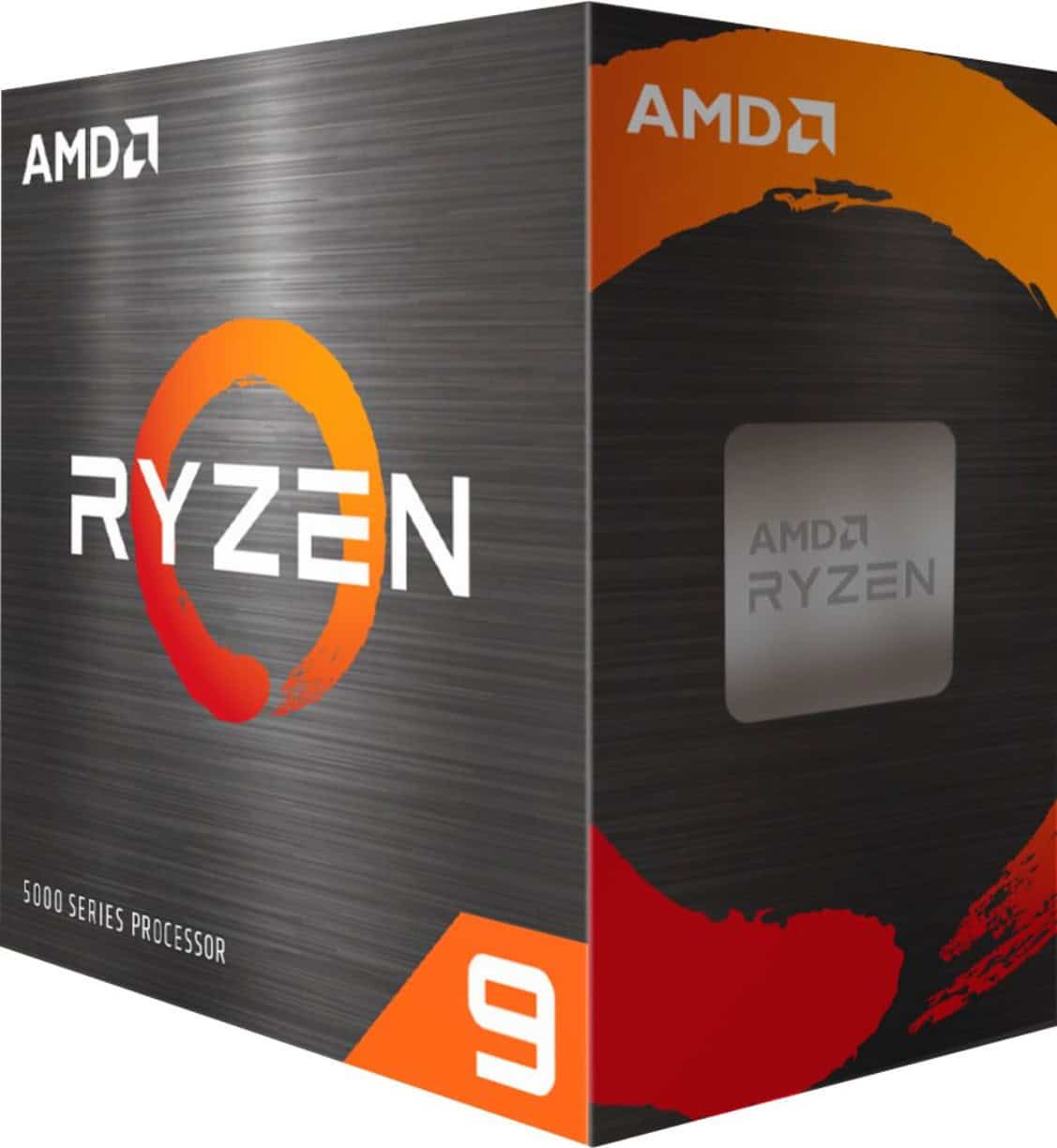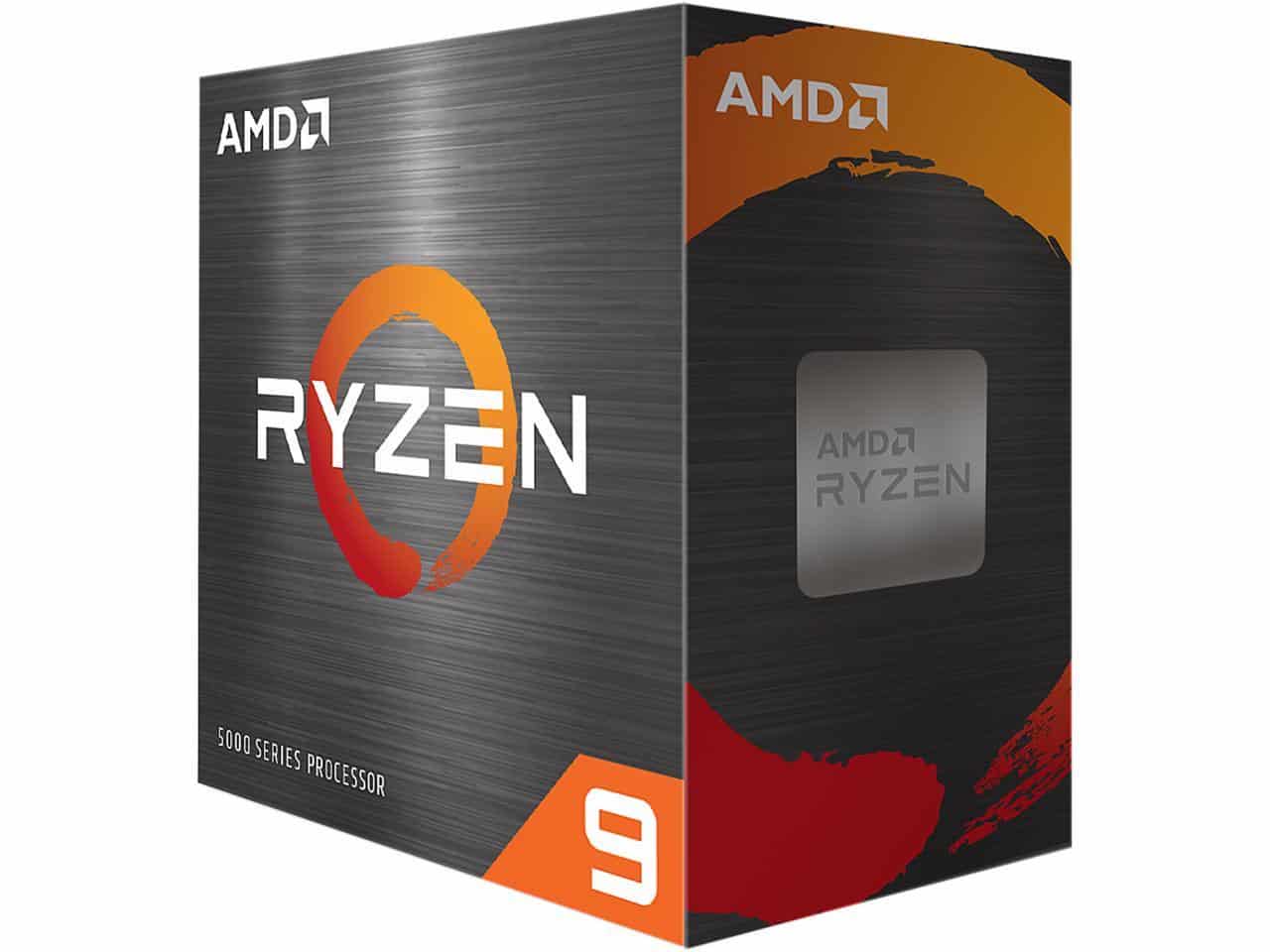Ryzen 5 9600X vs. Ryzen 9 5900XT: new entry-level against old high-end, who wins?
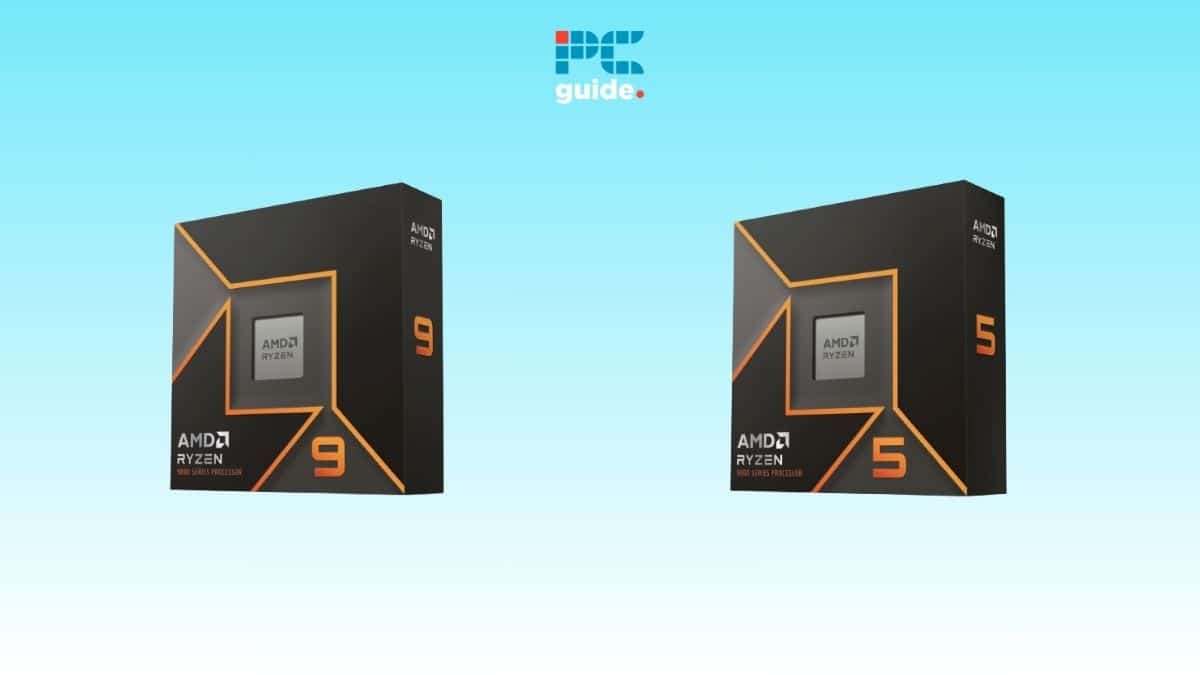
Table of Contents
The Ryzen 9000 series processors are the second generation to use the AM5 platform, but they stand far ahead of previous CPUs because they are based on the Zen 5 architecture. That said, we can now experience the full might of the Ryzen 9000 series as all of them have launched. Now, AMD’s decision to refresh two AM4 processors, the Ryzen 9 5900XT and the Ryzen 7 5800XT, was surprising and a nice touch to boost the longevity of the AM4 platform.
We were glad to see that AMD launched these AM4 processors as scheduled, and the Ryzen 9 5900XT is available and ripe for the picking. The same is now also true for the entry-level Ryzen 5 9600X CPU which you can get purchase from Amazon. The Ryzen 5900XT boasts improved specifications, which led to the question: Would it make any difference against the 9000 series entry-level CPU, the Ryzen 5 9600X? And that is exactly what we'll set out to find in this article.
Prime Day is finally here! Find all the biggest tech and PC deals below.
- Sapphire 11348-03-20G Pulse AMD Radeon™ RX 9070 XT Was $779 Now $739
- AMD Ryzen 7 7800X3D 8-Core, 16-Thread Desktop Processor Was $449 Now $341
- ASUS RTX™ 5060 OC Edition Graphics Card Was $379 Now $339
- LG 77-Inch Class OLED evo AI 4K C5 Series Smart TV Was $3,696 Now $2,796
- Intel® Core™ i7-14700K New Gaming Desktop Was $320.99 Now $274
- Lexar 2TB NM1090 w/HeatSink SSD PCIe Gen5x4 NVMe M.2 Was $281.97 Now $214.98
- Apple Watch Series 10 GPS + Cellular 42mm case Smartwatch Was $499.99 Now $379.99
- ASUS ROG Strix G16 (2025) 16" FHD, RTX 5060 gaming laptop Was $1,499.99 Now $1,274.99
- Apple iPad mini (A17 Pro): Apple Intelligence Was $499.99 Now $379.99
*Prices and savings subject to change. Click through to get the current prices.
If you want to save time and effort in securing these latest AM4 processors, check out the Where to Buy pages for the 5900XT and the 5800XT, which have different retailers listed in one place.
AMD Ryzen 5 9600X
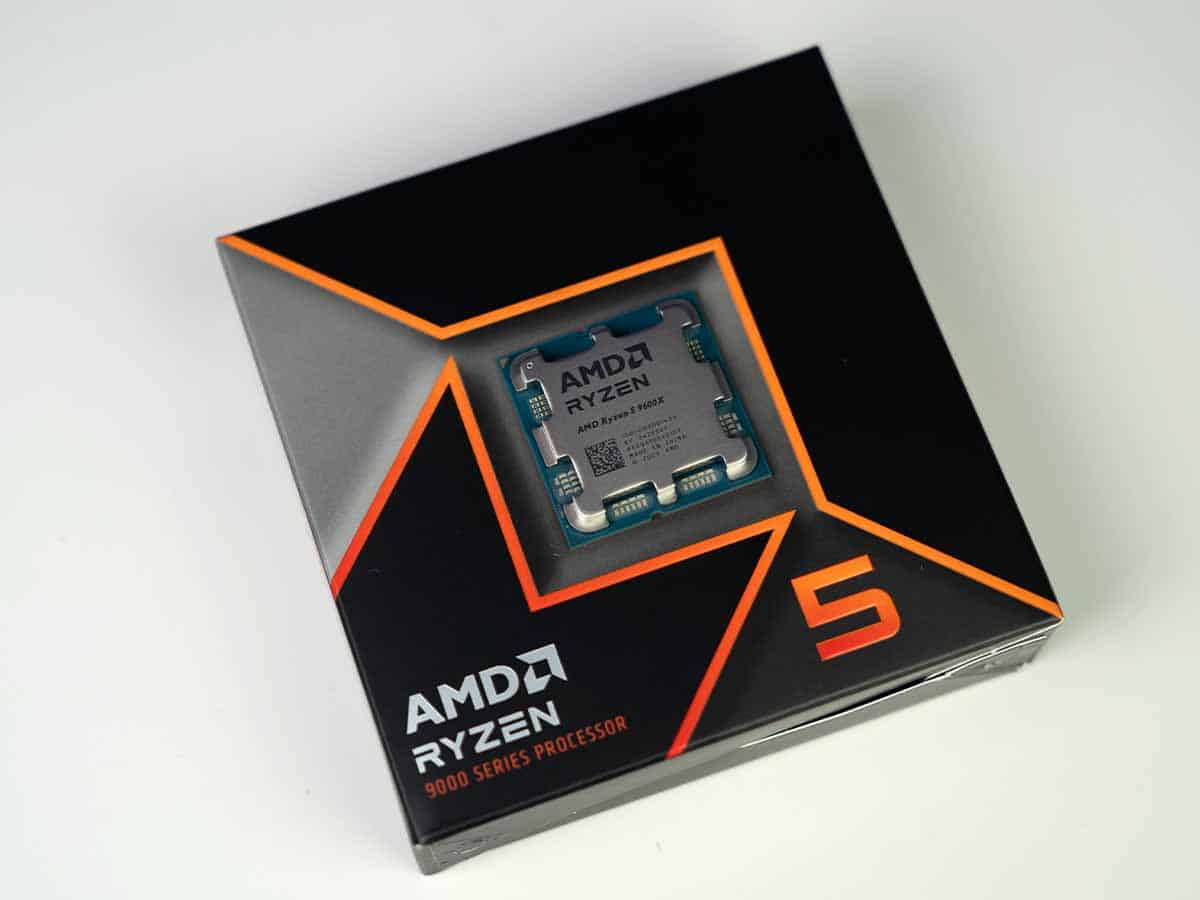
Cores
6
Threads
12
Boost clock speed
5.4 GHz
Base clock speed
3.9 GHz
L3 Cache
32 MB
TDP
65 W
Platform
AMD Socket AM5
Shop on Amazon
CHECK PRICEAMD Ryzen 9 5900XT
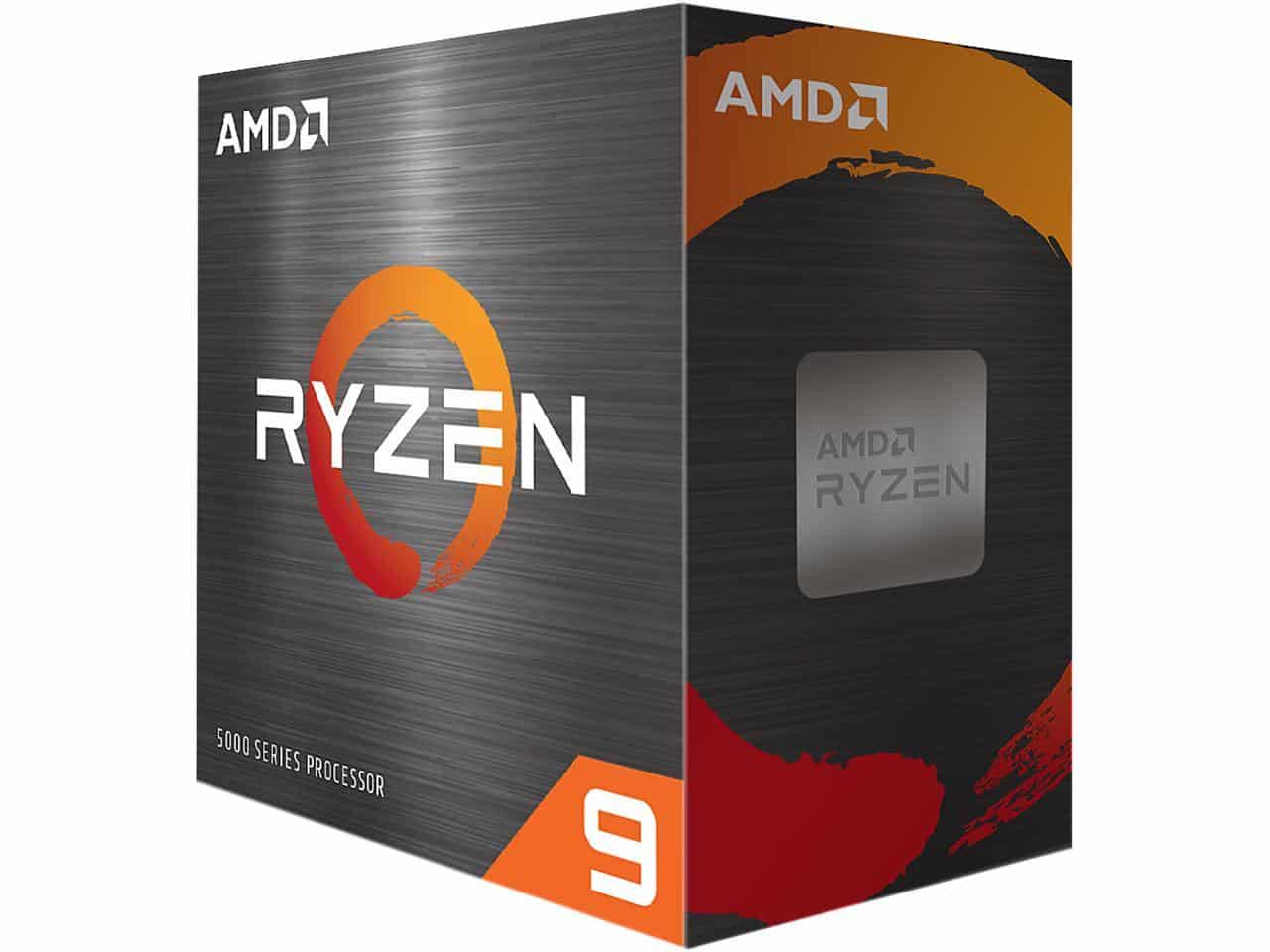
Cores
16
Threads
32
Boost clock speed
4.8 GHz
Base clock speed
3.3 GHz
L3 Cache
64 MB
TDP
105W
Platform
AMD Socket AM4
Shop on Amazon
CHECK PRICESpecification
To see the hardware difference between the two processors, we've listed their specifications below.
| Specifications | Ryzen 5 9600X | Ryzen 9 5900XT |
| Architecture | Zen 5 | Zen 3 |
| Socket | AM5 | AM4 |
| Process | TSMC 4nm FinFET | TSMC 7nm FinFET |
| Cores | 6 | 16 |
| Threads | 12 | 32 |
| Base clock speed | 3.9 GHz | 3.3 GHz |
| Boost clock speed | 5.4 GHz | 4.8 GHz |
| L3 Cache | 32 MB | 64 MB |
| TDP | 65W | 105W |
| Integrated graphics | AMD Radeon Graphics | – |
At first glance, we can see a massive difference between the two processors, as the 5900XT takes the in cores, threads, and cache. This begs the question: Would the 9600X’s 4nm process technology be able to provide enough edge to outperform such a massive difference in hardware, or will the champion of old reign supreme?

Foundations and cores
The Ryzen 5 9600X and Ryzen 9 5900XT are fundamentally different processors, belonging to completely different generations. The former uses the new Zen 5 architecture, while the latter is based on Zen 3, which is two generations old.
In addition, the difference is literally on a physical scale, as the 9600X has 4nm CPU process technology while the 5900XT has 7nm. This is a huge difference, meaning more transistors are on each CPU core of the 9600X, leading to faster and more efficient processing. On top of that, the Zen 5 architecture has a 16% IPC increment over Zen 4, meaning it’ll be even greater against Zen 3.

However, the 5900XT has a whopping ten more cores and 20 more threads than the 9600X. So, it just might outperform the 9600X via sheer brute force. However, it also has slower clock speeds than the 9600X, which leads us to our next section.
Clock speed
The clock speed determines how fast a CPU can process information and complete an instruction cycle. An instruction cycle consists of the CPU calling for the data, running the operation, and sending out the final result, so the faster the clock speed is, the better the performance of your system.
The 9600X has a 0.6 GHz faster boost and base clock speed than the 5900XT, but as mentioned before, the 5900XT has more cores and threads. What this means is that even though the 9600X works faster, the 5900XT has more muscle, so the gap in performance might not be as great as we might believe.
On top of that, there is always the option of overclocking it, which can increase its performance as well as its TDP and thermal output. In this case, we recommend using the best CPU cooler to keep it cool and performing optimally.
Cache and TDP
Another area where the 5900XT dominates is its 64 MB of L3 cache, which is double that of the 9600X. So, on top of more cores, a huge cache should also give the 5900XT an advantage in processing. However, the 9600X has its ace in the hole, the Zen 3 architecture, so we believe the competition might be neck and neck with these two.
The power consumption of these two processors varies by 40W, with the 5900XT consuming 105W while the 9600X has a low 65W. This makes sense since the 5900XT uses 7nm processes, which are less energy efficient than 4nm processes. So, this is a definite win for the young blood.
Graphic capabilities
The 9600X comes with integrated graphics with 2200 MHz frequency and two cores. So, it should be more than enough to run basic applications like the Microsoft Office suite or play solitaire to kill time.
The 5900XT doesn't have an iGPU, meaning if you opt for it, you'll need to invest in a dedicated GPU as well. However, this isn't necessarily a bad thing, as a dedicated GPU is more powerful than integrated graphics, and combined with a powerful CPU, you should be able to enjoy high FPS gaming. If you're interested in exploring options for dedicated GPUs, we recommend you check out our best graphics card guide for the top picks.
Pricing of the 9600X and 5900XT
The wait is over. We finally have pricing for the Ryzen 9000 series, which is much lighter on the pocket compared to the Ryzen 7000 series. The Ryzen 9 5900XT was released on schedule with a price tag of $349, which honestly doesn’t make sense given it’s an AM4 processor and has the same specifications as the 5950X.
That said, the entry-level and mid-range Ryzen 9000 processors have also launched, and we have their figures as well. The 9600X costs $279, making it $20 cheaper than the 7600X on launch. We won’t be surprised to see the 9600X replacing the 7600X as the go-to budget pick.
How have these CPUs changed from the last generation?
| Specifications | 9600X | 7600X | 5600X |
| Cores | 6 | 6 | 6 |
| Threads | 12 | 12 | 12 |
| Cache | 32 MB | 32 MB | 32 MB |
| Max boost clock | 5.4 GHz | 5.3 GHz | 4.6 GHz |
| Base clock speed | 3.9 GHz | 4.7 GHz | 3.7 GHz |
| TDP | 65W | 105W | 65W |
| Architecture | Zen 5 | Zen 4 | Zen 3 |
The first three specifications across all processors are the same, but the difference is between the architecture, TDP, and clock speeds. The 9600X has the fastest boost clock, while the 7600X takes over with the fastest base clock speed.
The 7600X has the highest TDP of 105W, which is high considering that the “600X” processors are budget and energy-efficient picks. That said, the 9600X has a low TDP of 65W, which is back to what we're used to seeing. What this speaks toward is better efficiency as more transistors are fitted on the CPU cores.
We compared the 5900XT to the 5900X and the 3900X and saw a massive difference in the cores and threads.
| Specifications | 5900XT | 5900X | 3900X |
| Cores | 16 | 12 | 12 |
| Threads | 32 | 24 | 24 |
| Cache | 64 MB | 64 MB | 64 MB |
| Max boost clock | 4.8 GHz | 4.8 GHz | 4.6 GHz |
| Base clock speed | 3.3 GHz | 3.7 GHz | 3.8 GHz |
| TDP | 105W | 105W | 105W |
| Architecture | Zen 3 | Zen 3 | Zen 2 |
Leading with four extra cores and eight extra threads, the 5900XT showcases its juiced-up hardware while its cache, boost clock, and TDP remain the same. The 3900X has the lead with a 0.5 GHz faster base clock speed, but given its Zen 2 architecture, the 5900XT should blow it out of the water.
Alternatives to the 9600X and the 5900XT
There are some processors that you could opt for instead of the 9600X and the 5900XT, and we've listed them below. We've reviewed some of these alternative options, and you can also check out their in-depth reviews.
9600X alternatives
-
AMD Ryzen 5 7600X
- Cores: 6
- Threads : 12
- Boost clock speed: 5.3 GHz
- Base clock speed: 4.7 GHz
- L3 Cache: 32 MB
- TDP: 105W
-
AMD Ryzen 5 5600X
- Cores: 6
- Threads : 12
- Boost speed : up to 4.6 GHz
- Base speed: 3.7 GHz
- L3 Cache: 32 MB
- TDP: 65W
5900XT alternatives
-
AMD Ryzen 9 5900X
- Cores: 12
- Threads: 24
- Boost clock speed: 4.8 GHz
- Base clock speed: 3.7 GHz
- L3 Cache: 63 MB
- TDP: 105 W
-
AMD Ryzen 9 5950X
- Cores: 16
- Threads: 32
- Base clock speed: 3.4 GHz
- Boost clock speed: 4.9 GHz
- L3 Cache: 64 MB
- TDP: 105 W
Which one should you go for?
This match-up is tricky as the difference between the Ryzen 9 and Ryzen 5 is certainly there, but the saving grace of 9600X is its Zen 5 architecture, which boasts a 16% IPC increase over Zen 4, and the 5900XT is based on Zen 3. However, due to its jacked-up hardware, the 5900XT should be able to hold its own in the face of resource-intensive workloads.
For users still on the AM4 platform, the 5900XT should be a good addition, but while AMD released these processors this year, we don't think this will be a frequent occurrence as the AM4 socket is already eight years old. So, they will eventually have to move to the AM5 platform; it’s just a question of when. So, if you've got the budget to make the shift, the 9600X is the way to go; otherwise, the 5900XT should extend your AM4 build for a couple more years.
I reached out to our resident tech enthusiasts, Jack Howarth and Seb Kozlowski, for their expert opinions on this matter, and we all came to the same conclusion. This is what they had to say:
The 9600X, besides having a lesser core and thread count, will dominate the 5900XT in most workloads thanks to the IPC increases that Zen 5 brings over Zen 3. It uses far less power, and is far easier to cool. Ideal for smaller builds, or those who are conscious of saving energy.
The 5900XT is ideal for those of you who are looking for something new from the Zen 3 platform, but don’t quite have the budget yet to upgrade to something a little newer, however, AM4 won’t last forever, and you have to consider whether it’s worth it for you to invest in a platform that’s already been superseded.
Jack Howarth
Although the Ryzen 5 might be a lower tier than the Ryzen 9 we still don’t expect to see the 5900XT be a better CPU. That’s since the 9600X is now two generations ahead and on an entirely new platform. So not only are you getting much improved manufacturing process and efficiency but a whole lot more with the likes of DDR5 and PCIe 5 available on Zen 5. Along with that AM4 although has been prolonged its not getting any more features, so it’s really there for those after an upgrade for now and a bit more power for less. So unless you require all the extra cores the 9600X is a great gaming CPU to go for.
Seb Kozlowski



